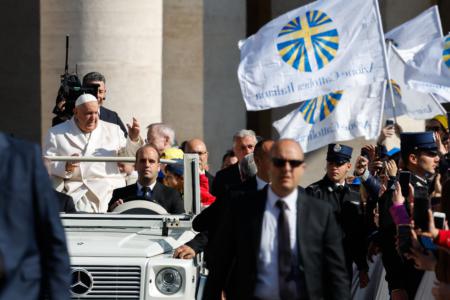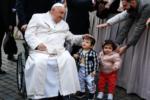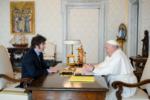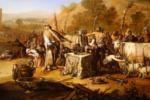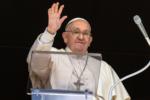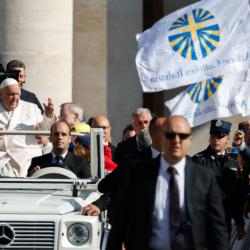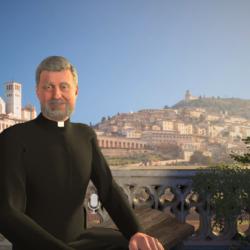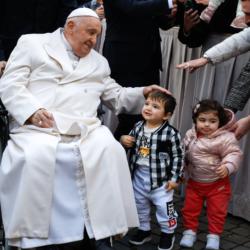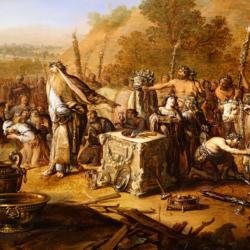Whatever happened to religion?
The late C.S. Lewis once wrote an allegory about a country that had a perfectly fine educational system, but after a while they decided to drop mathematics from their schools. The decision was popular with everyone but math teachers. Students cheered and parents with painful memories of quadratic equations happily supported the plan. For about a dozen math-free years, all was sweetness and light. Then, people noticed that trolley conductors couldn't make proper change and shop keepers were continually haggling with customer about bills. Finally, things were brought to a head when tax collectors reported that citizens were making so many mistakes that the taxation system was grinding to a halt. Needless to say, mathematics was quickly and vigorously returned to the curriculum of the schools.
Of course, Lewis, a British academic and serious Christian, was writing a cautionary tale about the crucial, but precarious place of religion in the education of a child and its contribution to civic life. He might well have been writing it for consumption by us folks here in "the Colonies."
The situation has not always been as it is today with religion being verboten in public schools. The early 17th century settlers in the little villages of Concord, Dorchester, Brookline, and the other struggling communities in and around Boston were desperate about the spiritual plight of their children. Cut off as they were from Europe and surrounded by dark forests, they feared for the souls of their children. In 1647 they banned together and pressured the Massachusetts Bay Colony legislature to pass the first education laws in the New World. The law required all villages and towns of 50 or more families to tax themselves in order to hire a teacher and establish a school. The law was aptly called the Old Deluder Satan Act because the settlers were convinced their children needed to be able to read the Bible and thus have the power to ward off the snares of Satan. The explicit purpose, then, of this tax-supported education was religious.
Later when the Colonies freed themselves from control by the English Crown, the religious motivation for schooling again came to the forefront. The Founding Fathers dared to establish a radical governmental idea, one that put real political power into the hands of uneducated farmers, tradesman and shop keepers. They took this dangerous step with the understanding that education would be a major priority so as to prepare citizens for the responsibility of self-government. Specifically, the tenets of the Christian faith were to be a primary foundation for these new schools.
While the degree of commitment to Christian dogma varied widely among the Founders, there was a strong appreciation for the role of religion as a foundation of civic virtue. James Madison, a leading intellectual of the period, wrote that "the belief in a God All Powerful, wise, and good, is so essential to the moral order of the World and to the happiness of man, that arguments which enforce it cannot be drawn from too many sources." The philosopher Michael Novak, a student of the writings of our Founders, capsulated their views in three lines:
Liberty is the object of the Republic.
Liberty needs virtue.
Virtue among the people is impossible without religion.
Since the nation's origins, the United States have flipped 180 degrees about the place of religion in our schools. Our early schools had biblical Christianity at the center of the curriculum, using it to teach reading, ancient history and the civility required of citizens in formation. However, gradually over the course of the 19th and the first half of the 20th century, biblical Christianity receded. The causes were many, from the popularity of new scientific theories, such as Darwinism, and the concerns of Irish, German and Italian immigrant Catholics that the public schools were being used to proselytize their children toward Protestantism. In any event, by the 1950s, the pressures were great to strip from our schools all references to God and to religion. By the turn of the 21st century, the job was complete. The merest mention of religion opened up teachers to the much dreaded charge of intolerance.
More serious is the religious vacuum in the schooling of our children. With the lack of awareness of God (other than a figure of fun to be lampooned on TV) children fall back on other sources, such as figures from sports, pop culture or the political world, to answer life's Big Questions. Without religious principles and spiritual tenets, they rely on science and an increasing secular view of human life. These sources, however, offer few convincing answers to ultimate questions such as "Why be good?", "What is the purpose of life?" and "Why shouldn't I do whatever I can get away with?"
The impact of the state's near monopoly on education is becoming increasingly clear. Today, the public (that is, the state) schools educate 90 percent of all U.S. children. The cost is high. The U.S. average is over $12,000 per pupil per year and in Massachusetts, over $16,000. On the other hand, the academic results of public education are embarrassingly poor with U.S. students continually being out-performed. More importantly, the impact on the lives of our young of our secular, god-free educations is truly chilling: 30 percent reject religion, well over half our high school students are sexually active; more and more are experimenting with bisexuality and homosexuality; fewer and fewer plan to marry and have children.
Our point is that it is profoundly "mis-educative" to leave the serious study of religion out of the education of a child. Secularists, which include the overwhelming majority of the country's "professional educators," quickly roll out the hoary cliche of separation of church and state, so that even the new charter schools must be religion-free. On the other hand, other modern democracies, such as England, Spain, Germany and France, have found ways to support parents' desires to include the eternal truths in the schooling of their children.
Questions: Is our current educational system what our Founders had in mind to sustain our democracy? Are our ultra-secular public schools serving the Common Good? Are the children of religious citizens being fairly treated? And, finally, what are we Catholics going to do about this?
Kevin and Marilyn Ryan, editors of "Why I'm Still a Catholic," worship at St. Lawrence Church in Brookline.
